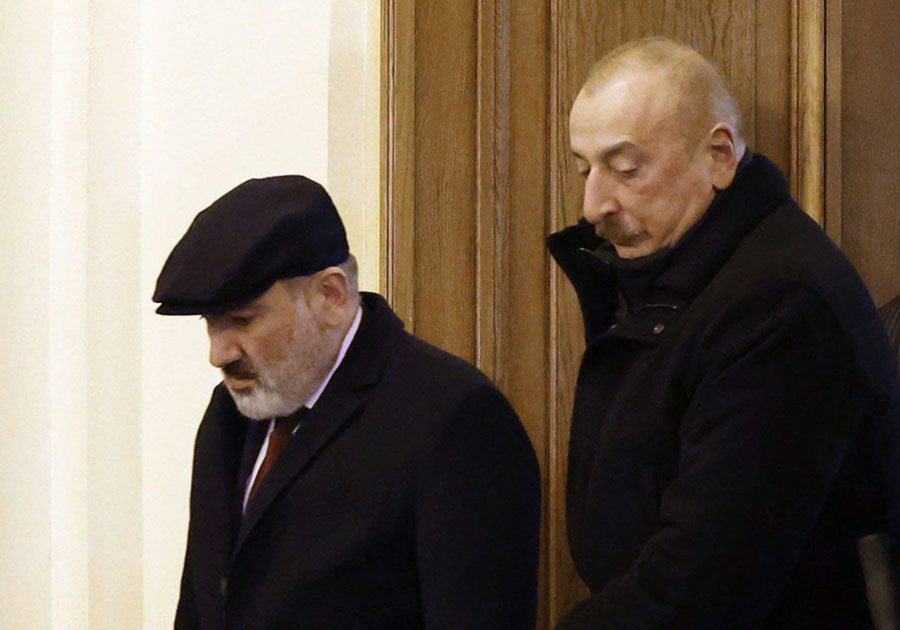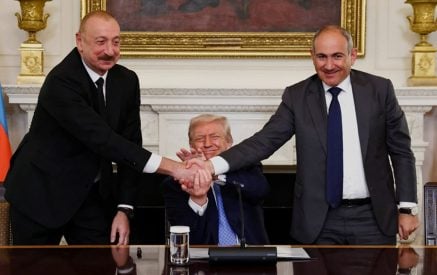by Suren Sargsyan
Since the end of the first Artsakh war, when negotiations between Armenia and Azerbaijan began, it became clear that the parties would not be able to agree on the most important issue: the status of the Nagorno-Karabakh. Moreover, no matter how much Azerbaijan tried to appear constructive in the negotiations, it was negotiating on the one hand and preparing for war on the other, having just one purpose in mind, to depopulate and occupy Artsakh once and for all. Actually, Baku never particularly hid its goals, constantly threatening Armenia with a new war, and resorting to all kinds of military provocations against Armenia and Artsakh.
As for Armenia, there was always the discussion that Yerevan should make concessions and soften its positions and go to the final solution of the Nagorno-Karabakh conflict as soon as possible. There was a belief that if Armenia makes concessions, the international community would give strong guarantees to the parties when Yerevan and Baku came to a common and final decision. But here the most important question remains: whether Azerbaijan was ready to give anything to Armenia and make compromises, or was it waiting for historical and geopolitical momentum – simply put, the “planetary alignment” which indeed happened in 2020.
Read also
It is obvious that what happened in 2020 and was completed in 2023 was a scenario designed by Azerbaijan and Turkey, i.e. to conquer Artsakh without Armenians. In fact, this was the only acceptable, final and complete solution for Azerbaijan and no other option could be tolerable for Baku. Because of that, for years Azerbaijan did not want the solution of the Nagorno-Karabakh issue, aggravated the situation and no matter how long parties negotiated, waited for a suitable opportunity to take Artsakh by war and expel the Armenians there. Azerbaijan was not willing to compromise anything.

Suren Sargsyan
In 2020 the long-awaited opportunity finally arose. By saying that, I mean the international political processes, tense Russia-West relations, Russian-Turkish neighborly relations, tense relations between Armenia and Russia, and the increasing role and importance of Turkey in the region. Moscow, while planning its own war in Ukraine, tried to position Turkey as a state that would not interfere with its plans, and Azerbaijan as a state that would allow Russia to export energy resources through their pipelines and avoid sanctions. It was obvious that Russia, having Ukraine as its top priority and its most difficult task, had to make concessions itself. Unfortunately, the price demanded by Baku and Ankara was Artsakh, without Armenians. Last but not least, in 2018 a leadership team was brought to power in Armenia, for which Artsakh did not represent any value, without mentioning its other mortal “sins.” So, seeing this historical momentum in September 2020, when the presidential campaign in the US was at its most active phase and Trump administration did not care about anything else but reelection, Baku and Ankara attacked, since nobody could stop them.
Taking into account the foregoing, it would be naïve to think that Azerbaijan would ever give up even one meter of Artsakh. It was also naïve to think that Azerbaijan could accept Artsakh with a single Armenian there. As much as Armenia was not ready to give up Artsakh until 2018, in the same way, Azerbaijan was not ready to hand over Artsakh.
Within recent years, it became clear that the Nagorno-Karabakh issue has no peaceful solution. The theses that have been circulating in Armenia for years that if Armenia works for a solution to the Nagorno-Karabakh conflict, the international community will give all the necessary guarantees so that there will be no war. However, we saw that there can be no international guarantees because global players have their own plans regarding the Nagorno-Karabakh problem as well as the future of the South Caucasus region at large and these plans are completely different from each other.
Let me be clear in my conclusions. Azerbaijan wanted Artsakh completely without any concessions, and naturally without any Armenians, in order to consider this issue completely and finally solved. Of course the war was inevitable, but its consequences could have been avoided if Armenia had wiser leadership, to put it mildly.




















































